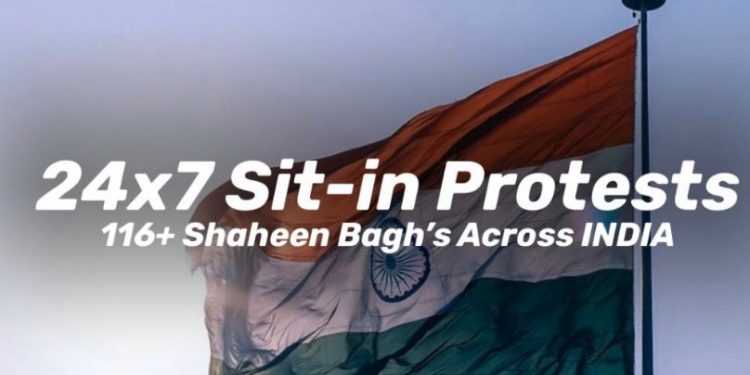New Delhi: The Supreme Court Monday said people have the fundamental right to protest in a democracy but they should not be blocking roads. “There must be a balance. This could create chaos,” a two-judge bench comprising justices Sanjay Kishan Kaul and KM Joseph observed in course of a hearing on the Shaheen Bagh protest that has been blamed for causing inconvenience to people.
“The question is where should they protest… It should not be a place like a street,” the bench said right at the beginning of the hearing Monday.
“Democracy works on expression of views. But there are lines and boundaries. They can protest and need not wait for the Supreme Court judgment (on the Citizenship Amendment Act). But the issue is, is a road the place to hold protests,” said Justice Kaul.
Two petitions had been filed in the Supreme Court by lawyer Amit Sahni and BJP leader Nand Kishore Garg to ask the top court to order anti-CAA protesters to end the road blockade on the Shaheen Bagh – Kalindi Kunj stretch. Last week, Bhim Army chief Chandra Shekhar Azad also requested the court to become a party in this case.
The Kalindi Kunj road is a vital route since it connects three states – Delhi, Uttar Pradesh and Haryana — and the road closure has led to huge difficulties not only for the residents of the area but lakh of commuters who are not able to use the road due to the blockade. Azad, in his request, however, underscored that a bit of this inconvenience was linked to the police blocking other roads that could have been used by commuters. Azad had also alleged that the authorities would use any order to remove protesters to justify police force on the peaceful protesters.
The judges have asked two senior lawyers Santosh Hegde and lawyer Sadhana Ramachandran to reach out to the protesters at Shaheen Bagh to ask them not to block roads.
“Right to protests has been recognised world over in democracies, especially in India. It is a fundamental right subject only to public order and security of state,” said Justice KM Joseph. The bench hoped the two lawyers could possibly suggest an alternative site where the protesters could be shifted.
Tushar Mehta, the centre’s senior most-senior law officer, however, asked the court not to make the protesters removing themselves from the road conditional upon their getting an alternative site to protest.
“The message should not go that we have been brought to our knees,” Tushar Mehta said.
The Shaheen Bagh protesters are opposing the Citizenship Amendment Act (CAA), passed December 12, 2019 that allows the government to fast-track citizenship for minorities from three neighbouring countries, Pakistan, Bangladesh and Afghanistan.






































